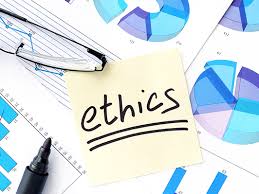A Compliance Reminder: Focus on Your Culture

We all agree on the importance of corporate culture. Everyone gets it – corporate leaders mouth the words but rarely understand the nuances, and the need to attend to a company’s culture. Compliance professionals want to devote more time to corporate culture but often are overburdened with less important tasks. It is easy for compliance professionals to get lost in the details, theory, and technology surrounding compliance and fail to maintain proper attention on corporate culture. Compliance professionals need to go back to basics and reexamine and reinvigorate their company’s culture.
Let’s refresh on the issue and importance of corporate culture. A strong compliance program, including its corporate culture, promotes adherence to the organization’s legal and ethical obligations.
To push the culture agenda, compliance professionals should cite abundant research demonstrating the link between a positive corporate culture and increased profits and sustainable growth. 2021 LRN Benchmark of Ethical Culture (companies with the strongest ethical cultures outperform others by 40 percent); 3 Reasons an Ethical Business Leads to Profits, Washington State University, Carson College of Business, April 17, 2023; World’s Most Ethical Companies at https://worldsmostethicalcompanies.com/ (World’s Most Ethical Companies historically outperform their peers and competitors financially, demonstrating a tangible ROI for doing the right thing).

Organizations with a positive ethical culture have lower rates of employee misconduct, increased employee productivity, and lower employee turnover. All of these factors lead to positive growth, higher employee morale, and a reduced risk of misconduct, government investigation, collateral litigation and reputational damage.
An effective compliance program promotes “an organizational culture that encourages ethical conduct and a commitment to compliance with the law.”U.S. Sentencing Guidelines §8B2.1. A compliance and ethics program should be tailored to the company’s specific business and reflect the operational realities and applicable compliance risks.
Over the last thirty years, the Organizational Sentencing Guidelines have spurred the transformation of corporate governance frameworks to include a major investment in corporate ethics and compliance programs. Corporate boards and executive leaders have recognized the distinct benefits from investing in effective ethics and compliance programs.
Building on these important principles, within the last ten years, the Department of Justice has issued significant guidance on federal prosecutors’ expectations with regard to corporate ethics and compliance programs. DOJ’s Guidance has elevated the importance of ethical cultures and a commitment to compliance programs.
As I often repeat myself – a strong culture of ethics is the most effective internal control that a company can have. When effective, a company’s culture exists not only at the senior level, i.e. tone-at-the-top, but permeates through the organization.

In ethical companies, employees often cite their leaders for their ethical behaviors and the example they set. Additional indicators of an ethical culture are : (i) a strong speak-up culture where employees are comfortable raising issues with their supervisors and senior management; (ii) adherence to corporate values such as respect, integrity, and other specific values of importance; (iii) leadership behavior and communications confirming commitment to compassion and empathy; (iv) emphasis on collaboration and elimination of operational silos; (v) middle management job satisfaction, including opportunities to participate in career development programs; and (vi) lower misconduct reporting rates.
These are just examples – and of course the relevant indicators will vary depending on your specific company values, organizational structure and compliance program.















